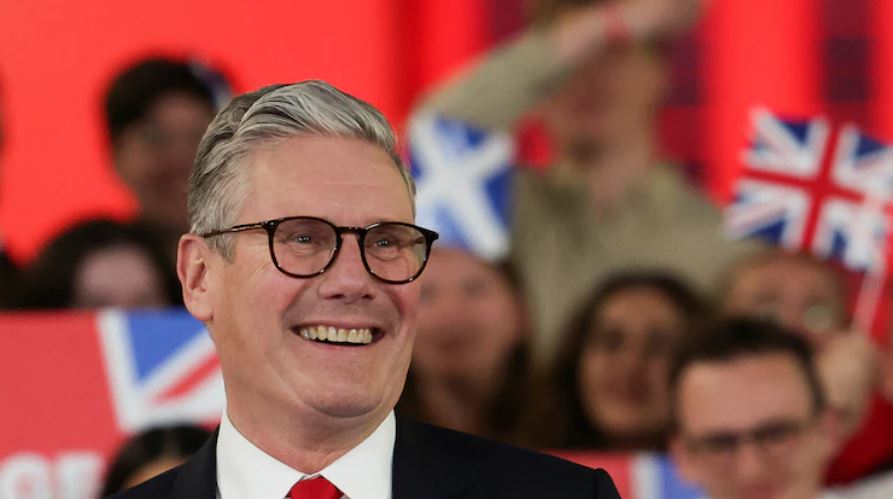Keir Starmer’s Uncharted Political Trajectory
Keir Starmer, the newly elected Prime Minister of the United Kingdom, has emerged from a landslide victory that upended 14 years of Conservative rule. Despite his campaign’s subdued nature, his ascent to power marks a potential departure from the moderate path typically taken by leaders in office.
Economic Reactions and Investor Sentiment
In the wake of Starmer’s election triumph, financial markets exhibited a curious response. The FTSE 250 index saw an immediate uptick, signaling a rare alignment of corporate and public interests favoring a center-left agenda. This divergence from the norm underscores the anticipation surrounding Starmer’s governance.
A Departure from Conventional Politics
Unlike his predecessors who gravitated towards centrism upon assuming power, Starmer’s tenure could challenge this trend. His campaign, devoid of a clear agenda yet resonant with protest votes, hints at a public sentiment demanding substantive change beyond the status quo.
Policy Pragmatism vs. Ideological Shifts
As a former prosecutor known for pragmatic approaches, Starmer’s policy platform has trodden cautiously between fiscal responsibility and selective tax reforms targeting niche sectors. While commitments to end austerity and bolster healthcare are on the table, ambitious green investments have been deferred.
European Parallels and Unique Challenges
Comparatively, European political landscapes have witnessed radical shifts tapering into moderate governance post-election. However, the UK’s trajectory under Starmer may buck this trend, potentially veering leftward amidst economic pressures and public expectations.
Fiscal Realities and Strategic Choices
The state of Britain’s public finances presents formidable challenges for Starmer. With projections indicating sustained high debt-servicing costs and economic growth pressures, tough decisions loom on taxation and expenditure. Balancing fiscal prudence with growth imperatives will define his administration’s economic strategy.
Economic Growth and Taxation Dilemmas
Starmer faces the daunting task of navigating economic growth amidst fiscal constraints. While ruling out conventional revenue sources like income taxes, alternative measures such as capital gains and property levies may come into play. These decisions, crucial for economic stability, must align with market expectations and investor confidence.
The Market’s Perception and Political Navigation
Critical to Starmer’s strategy will be managing market perceptions amid potential ideological shifts. As he contemplates recalibrating fiscal policies, the challenge lies in articulating these shifts convincingly to stakeholders. Maintaining a delicate balance between political pragmatism and investor sentiment will be pivotal.
Anticipating Keir Starmer’s Leadership
As Keir Starmer assumes his role as Prime Minister, speculation abounds regarding his capacity to redefine UK politics. Whether his reputation as a steady centrist can accommodate potential leftward shifts remains uncertain. The coming years will test his leadership’s resilience against economic realities and public expectations.
Summary Table:
| Key Learning Points |
|---|
| Keir Starmer’s political trajectory as UK Prime Minister |
| Economic implications of potential leftward policy shifts |
| Market reactions and investor sentiment |
| Fiscal challenges and strategic economic choices |

Sunil Garnayak is an expert in Indian news with extensive knowledge of the nation’s political, social, and economic landscape and international relations. With years of experience in journalism, Sunil delivers in-depth analysis and accurate reporting that keeps readers informed about the latest developments in India. His commitment to factual accuracy and nuanced storytelling ensures that his articles provide valuable insights into the country’s most pressing issues.



